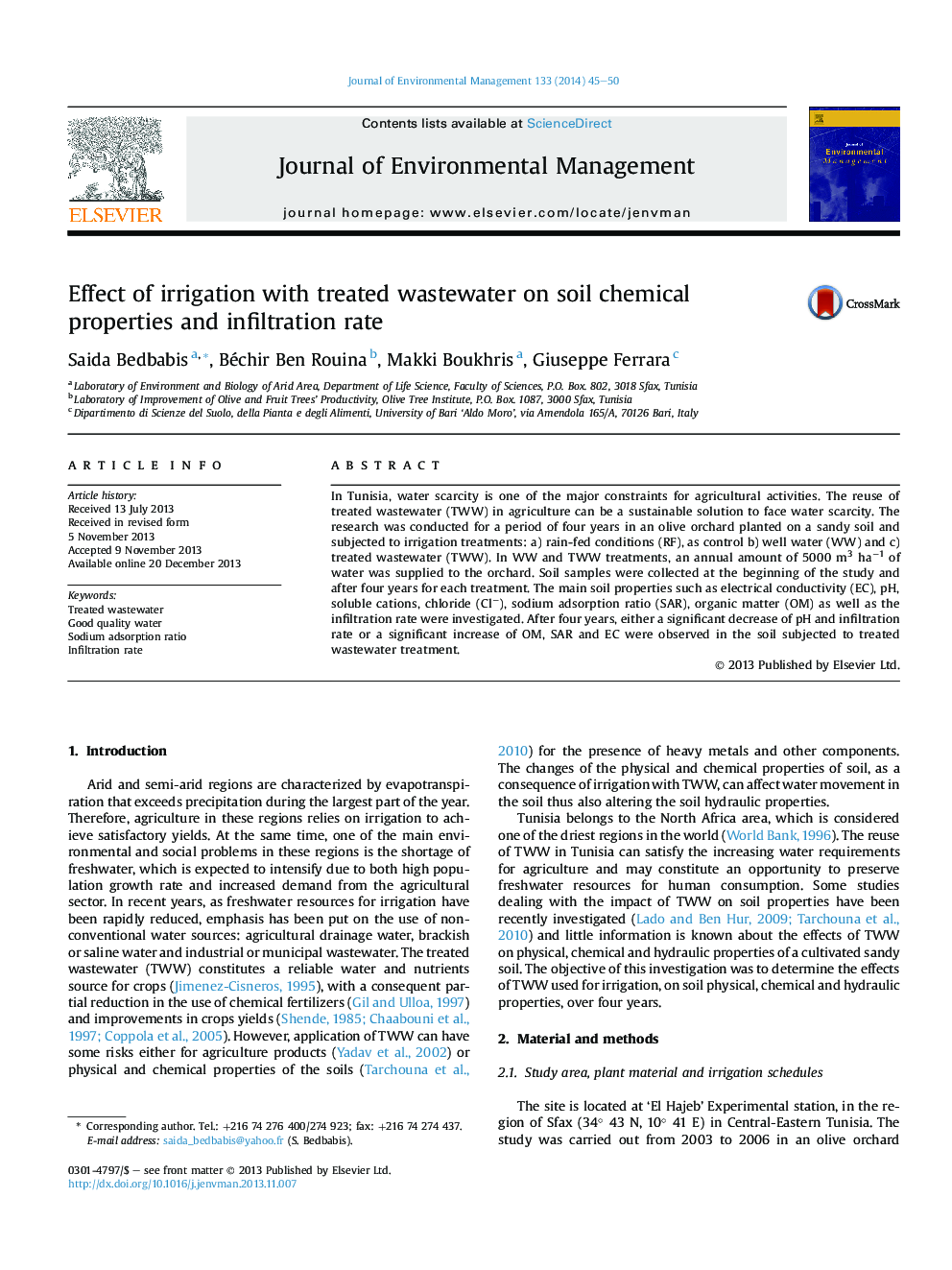| Article ID | Journal | Published Year | Pages | File Type |
|---|---|---|---|---|
| 1055823 | Journal of Environmental Management | 2014 | 6 Pages |
•We examined the effects of irrigation with treated wastewater in an olive orchard.•Treated wastewater can be used as a source of major nutrients for plant nutrition.•Sodium and chloride accumulation was measured in all soil layers.•Accumulation of suspended solids reduced the water infiltration rate of the soil.•Irrigation with treated wastewater lowered the soil pH after four years.
In Tunisia, water scarcity is one of the major constraints for agricultural activities. The reuse of treated wastewater (TWW) in agriculture can be a sustainable solution to face water scarcity. The research was conducted for a period of four years in an olive orchard planted on a sandy soil and subjected to irrigation treatments: a) rain-fed conditions (RF), as control b) well water (WW) and c) treated wastewater (TWW). In WW and TWW treatments, an annual amount of 5000 m3 ha−1 of water was supplied to the orchard. Soil samples were collected at the beginning of the study and after four years for each treatment. The main soil properties such as electrical conductivity (EC), pH, soluble cations, chloride (Cl−), sodium adsorption ratio (SAR), organic matter (OM) as well as the infiltration rate were investigated. After four years, either a significant decrease of pH and infiltration rate or a significant increase of OM, SAR and EC were observed in the soil subjected to treated wastewater treatment.
